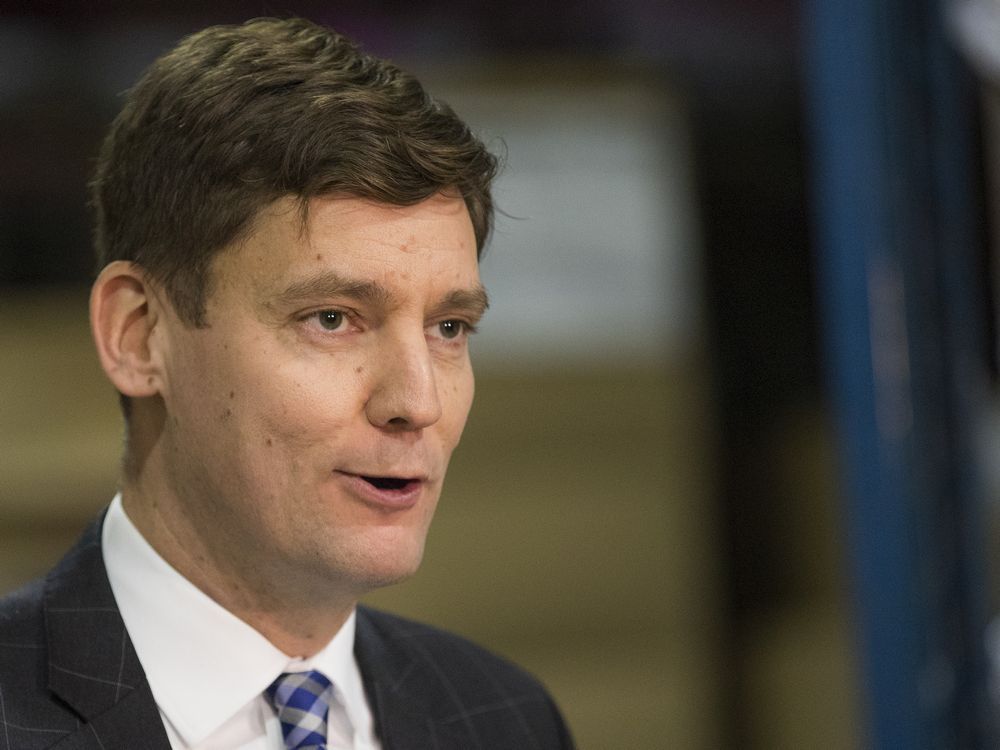Vaughn Palmer: It's time for politicians to stop talking about B.C.'s Cullen commission

Credit to Author: Stephen Snelgrove| Date: Tue, 25 Feb 2020 03:43:08 +0000
VICTORIA — As the money laundering inquiry commenced public hearings Monday, Attorney-General David Eby offered strong hints about how the independent commission should go about its business.
“I have two concerns about the success of the commission in these early days,” he told reporters at the legislature.
Eby’s first concern went back to one reason why the New Democrats were initially reluctant to call an inquiry: the prospect that the commission could conflict with continuing or potential criminal prosecutions.
Commissions of inquiry do not have the power to lay criminal charges and the NDP cabinet directed this one to proceed in a way “that minimizes the risk to any prosecution.”
But Eby worries that the latter directive could keep the commission from investigating matters that, in his opinion, ought to be investigated.
“I am concerned that the commission could be knocked off pace by a self-interested party, vexatiously raising concerns about some unspecified potential future prosecution or what could possibly be but is currently not and may never be a criminal investigation,” said Eby.
He provided not a shred of evidence that such an application has or would be brought before the commission.
Rather, the concern was prompted by Eby’s belief that prosecutions for money laundering “are simply not happening to any degree approaching the scope of the problem.”
“This commission cannot interfere with prosecutions or arrests that are simply not happening, and without the commission’s work, will never happen.”
He then went on to suggest what the commission should do to prevent being “knocked off pace” in the event a vexatious application were to materialize.
“We will encourage the commission to interrogate any objections about potential investigations or prosecutions aggressively because this is a public inquiry into criminal activities,” said Eby. “We will urge the commission to accept that they may need to walk into territory that is usually exclusively, but has not been for reasons that are unknown, the territory of the police.”
Then some advice from the A-G on how the commissioner should approach his task, mindful of the public interest as David Eby sees it.
“This balancing exercise between non-interference and criminal investigations and establishing a comprehensive understanding of how money laundering is working in our province will be difficult, but critically important to the success of the commission,” Eby opined. “Shutting down lines of inquiry overcautiously undermines the overwhelming desire of British Columbians for a public airing of these matters.”
This from an attorney general who, in almost the same breath, boasted how the New Democrats had “given this commission full independence to ensure it can do its job without being deterred by any political, partisan, or economic suggestion that the sky may fall if they do what they have been asked to do.”
The commissioner is Austin Cullen, associate chief justice of the B.C. Supreme Court. He is backed by a squad (nine at last count) of lawyers.
Commissioner Austin Cullen makes opening statements at the inquiry into money laundering in Vancouver on Feb. 24, 2020.
Cullen and his team have been at their work for months. I expect they have a better grasp than Eby of the challenges of conducting a public inquiry while not intruding into the territory of police and prosecutors. And it is just plain insulting for the attorney-general to have insinuated that the commission could not tell the difference between a bona fide application and one that is frivolous or vexatious.
Eby wasn’t finished grandstanding. He then revisited an earlier complaint that the B.C. Liberals are holding up release of cabinet documents about money laundering from their era.
According to Eby, rather than simply delivering the documents, the Liberals named former cabinet minister Mike de Jong to vet their cabinet documents before deciding what should be passed on to the commission.
Outrageous if true. De Jong would have an obvious conflict of interest. He was a senior minister in a government accused of having ignored the evidence of money laundering that was accumulating under its nose.
But as Eby also admitted, the commission has subpoena power and could override any attempt by the B.C. Liberals to hold back documents.
In any event, de Jong denied all. He said he supports giving the commission everything it has asked for and won’t be vetting any of the material.
The B.C. Liberals then released a Feb. 13 letter to Eby’s own ministry in which de Jong professed to be “anxious to ensure that the commission has access to all the material it requires.”
However he asked to be put directly in touch with the commission, saying the request derived “from the present attorney general’s propensity to comment publicly and inaccurately on my correspondence with your office.
“The important work of the commission deserves to be undertaken independently and free from the partisan rhetoric the present attorney-general appears incapable of refraining from.”
On that score, Eby was unable to resist treating reporters to his preferred list of witnesses for the inquiry: “Christy Clark, Mike de Jong, Rich Coleman — they should be glad I’m not the commissioner.”
De Jong, no stranger to partisan swordplay, fired back by noting how the commission request for cabinet documents extends back to 1996, halfway through the NDP’s last term of government.
He speculated that the extensive look back could have something to do with the Nanaimo bingo scandal, which plagued the NDP through its time in office.
Enough.
The commissioner already has plenty of challenges. The politicians should shut up and let him do his job.